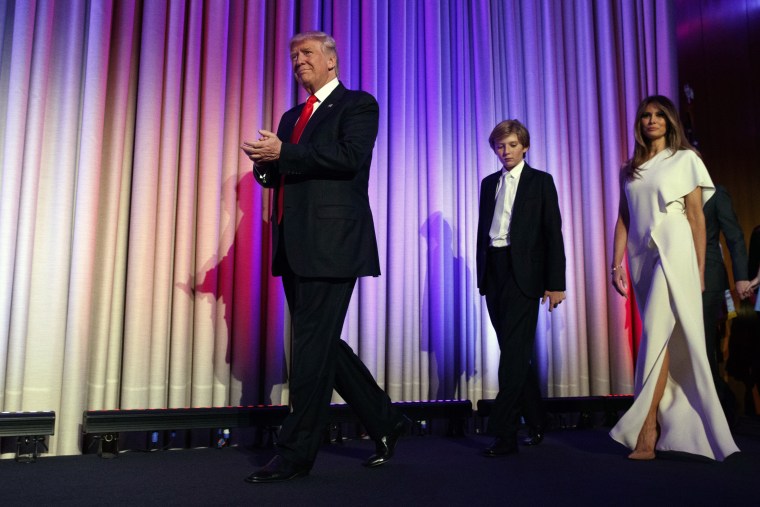The 2016 presidential election was three weeks ago, but it wasn't until yesterday that the state of Michigan officially finished its voting tally. The results were not a surprise: Donald Trump narrowly won the Wolverine State and its 16 electoral votes. Barring any surprises at the Electoral College, the Republican president-elect will end up with 306 electoral votes,That's a total that Kellyanne Conway, Trump's campaign manager and spokesperson, apparently finds very impressive. "306. Landslide. Blowout. Historic," Conway said on Twitter yesterday.The definition of "landslide" can be a little vague -- there is no specific, quantitative threshold to be met -- so it's hard to say with conviction that Conway is necessarily wrong. I can say, however, that if she believes 306 electoral votes constitutes a historic blowout/landslide, Conway is using a definition so generous, the words she's using have practically no meaning.With 538 electoral votes available, Trump's 306 works out to roughly 57%. Given Republican difficulties in presidential races over the last couple of decades, that's not too shabby. But as Nate Silver explained, to see this as a historic blowout/landslide is tough to take seriously.
[I]n a historical context, Trump's Electoral College performance is decidedly below-average. So it's a bit Orwellian to call it a "landslide" or a "blowout." There have been 54 presidential elections since the ratification of the 12th Amendment in 1804. (Before that, presidential electors cast two votes each, making it hard to compare them to present-day elections.) Of those 54 cases, Trump's share of the electoral vote -- assuming there are no faithless electors or results overturned by recounts -- ranks 44th.
In the 538 era -- since 1964, candidates have needed 270 electoral votes to win the White House -- there have been 14 presidential elections. As Jamison Foser noted yesterday, Trump's total this year is the 10th largest of these 14 cycles.In other words, what we're left with is a president-elect who lost the popular vote by more than 2 million votes, scored a modest electoral victory, and ends the year with the worst popular-vote performance of any president in 140 years.A variety of adjectives come to mind. "Landslide," "blowout," and "historic" aren't among them.Of course, the next question is why Trump and his team are so eager to turn his victory into something it's not.A variety of Republicans have made the point in recent days and weeks that this historical context has no real, practical value, and it's not an unreasonable point. The election's over. Trump won. The margins make for interesting charts, but it doesn't change who'll stand on the podium on Inauguration Day.But note that it's just Democrats who keep focusing on the details. Trump and his team are trying to spin his modest victory in part because they're a little embarrassed by the president-elect's sizable popular-vote defeat -- that actually is "historic" -- and in part because they hope to manufacture a "mandate" where none exists.Reality, however, is stubborn.
